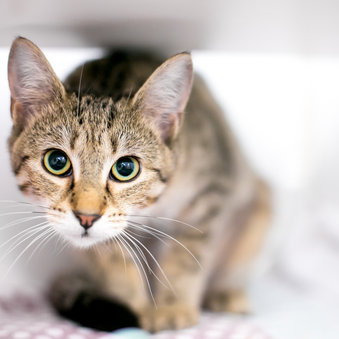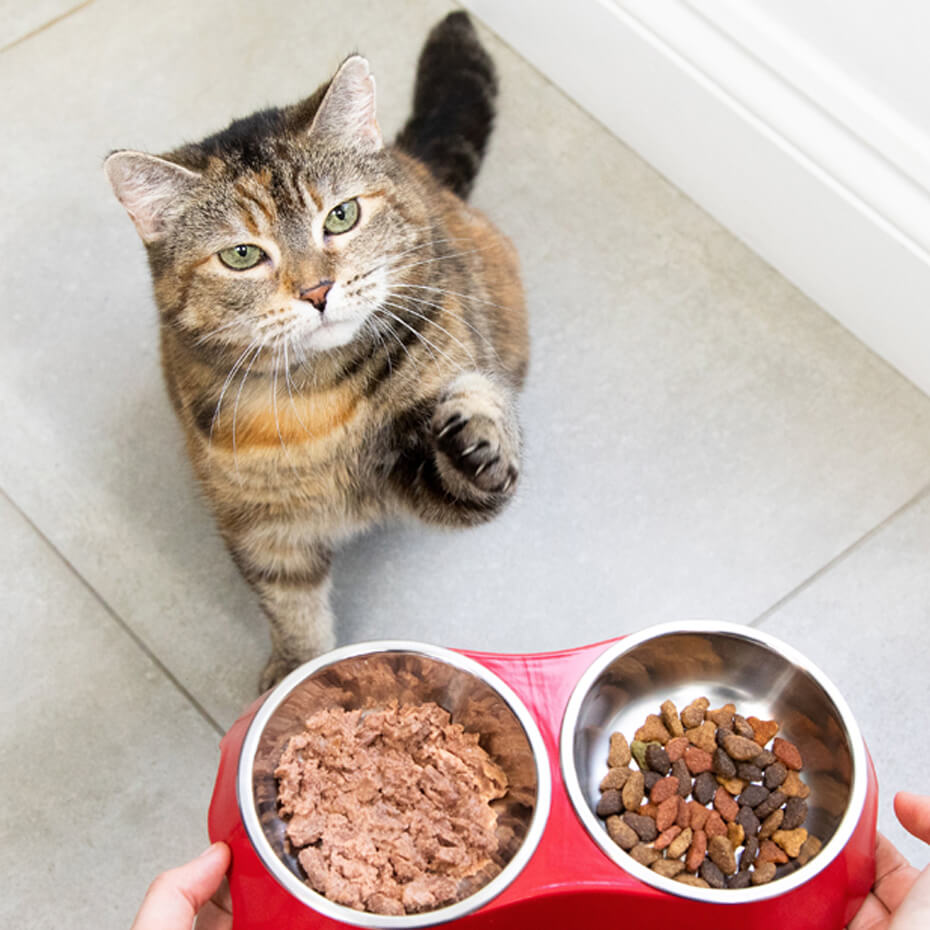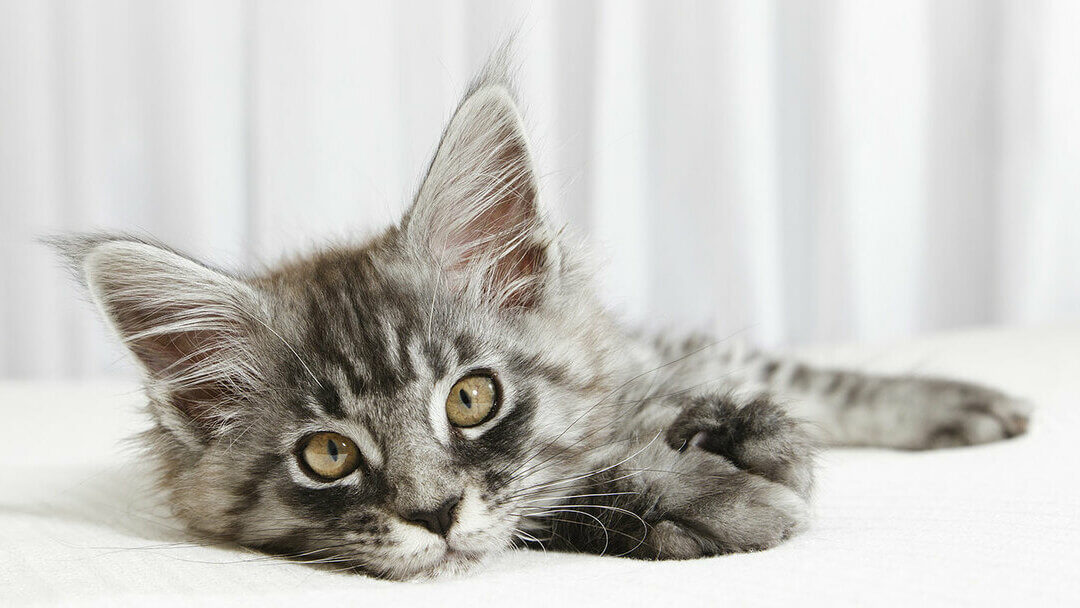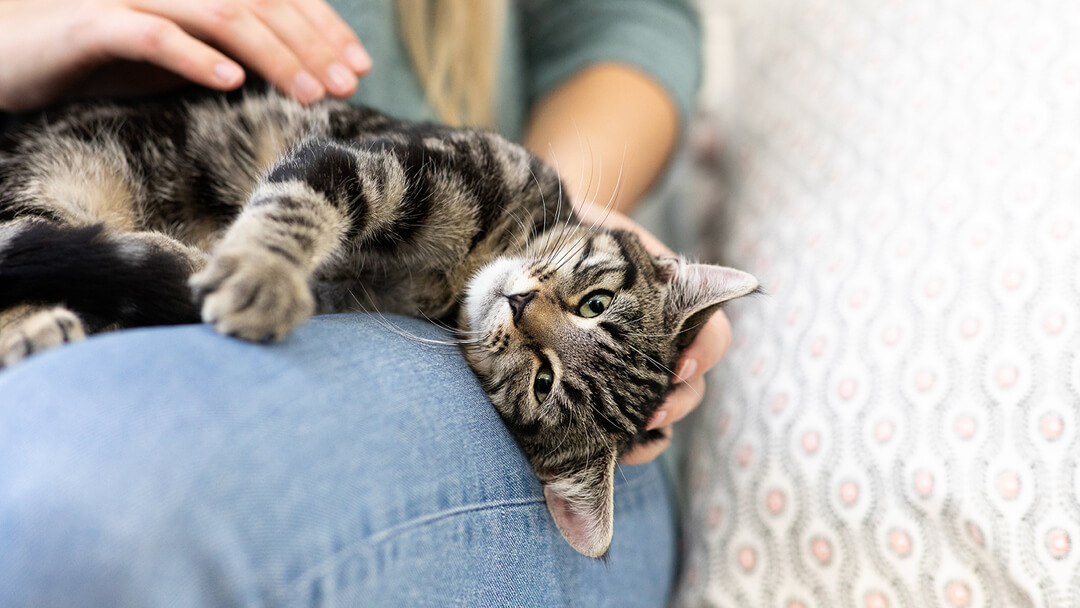
Your cat doesn’t just need the right food and exercise for their age and body condition; emotional nourishment and cat care is also one of the most important parts of keeping a happy cat.
Your cat’s emotional needs are based on their personality, age and lifestyle. If your cat spends the majority or all of their time indoors, for example, they may rely more heavily on you to provide cat care for their emotional wellbeing. Keeping such an intelligent and emotionally sophisticated pet happy can require a little effort and imagination, especially if your cat isn't using their natural instincts to survive on their own outdoors.
A brief history of the cat
Today's domestic cats are descended from wild cats who began to take advantage of the abundance of mice around corn stores in early Middle Eastern and North African civilisations, about 4,000 years ago. Today, pet cats are more often born indoors than in the wild, and spend their whole lives being fed and loved as part of our families - a far cry from the solitary hunter lifestyle of their ancestors!
There are over 50 breeds of pedigree cats around the world, although by far the most prevalent is the ordinary ‘moggy’ with their wonderful variety of coats and colours.
Cat psychology
When your cat does something (hunt, for example), it is likely to satisfy some kind of need. The three key ‘positive systems’ (types of need) of cat psychology are:
- The reward-seeking (or just ‘seeking’) system
- The care system
- The play system
Each need prompts a certain behaviour from your cat – they want to fulfil that need! When your cat does something like hunt, though, they’re not just fulfilling one of these needs. For example, hunting might be ‘reward-seeking’ (the reward being the mouse to eat) as well as ‘play’.
Your cat’s other emotional systems include lust, fear, panic and rage, and all of these systems are common to all species of mammals, from mice to monkeys.
In short, just like us, your cat’s emotional needs are varied and need satisfying. Without the chance to explore these needs, your cat wouldn’t learn as much, form strong bonds with you and other people, or enjoy life to the full. This is why understanding your cat’s emotional needs is important; if they are fulfilled, you’ll be treated to the signs of a happy cat!
The reward-seeking system
In short, ‘reward-seeking’ in cat psychology gives them the motivation to find essentials such as food and water. You could say it’s what keeps them alive! Just like us, reward-seeking also drives your cat to seek out enjoyable feelings such as sitting in a sunny spot and playing with people. They don’t need to do any of this to survive, but it certainly is rewarding for them, as it produces pleasurable feelings.
Cats evolved to hunt for their food, but of course your cat doesn’t need to do this now, as you feed them nutritionally balanced meals. However, your cat’s brain and emotional system is still designed for the hunt! That’s why it’s important when caring for your cat, that you let them express this behaviour so they don’t feel frustrated.
Rather than actually hunting rodents (which they might do anyway), your cat will enjoy games that encourage them to chase and pounce. Moving toys designed for cats, for example, will allow them to carry out this behaviour and satisfy their needs. You’ll be able to see your pet’s ‘eye-stalk-chase-grab-bite-kill’ behaviour as they play!
Engaging in these games together isn’t just an enjoyable way to bond with your pet – it can help prevent common behavioural problems. Still wondering how to make your cat happy and satisfy this behaviour? Stimulating your cat multiple times a day to chase fishing rod toys and balls is a great place to start, and they may also enjoy stalking and chasing other friendly cats, or even the family dog in play!
The care system
The ‘care system’ evolved in mammals to help bond parents to their offspring, so that parents instinctively care and nurture their children for a far longer period than any other animal. This means good things for their survival, and still lives on in cats to this day.
The care system also provides mammals – including us - with the ability to have all kinds of other relationships. Cats have evolved to retain a friendly, kitten-like dependency even as adults. This is especially true when they are indoors and being cuddled and cared for by their owners, even though they are such independent and confident hunters outdoors!
Some adult cats love the company of other cats, while others will simply ignore them. Others might even defend their own territory from other cats – each one is different. Cats that do this are naturally more solitary, and they are perfectly happy as long as they have a loving owner like you.
The secret to a happy cat and maintaining a good relationship with them is not to chase them around trying to show your affection; this may only alarm and distance them from you. Instead, respond to the signs of a happy cat and your feline friend’s demands for attention and physical contact whenever you can, providing lots of relaxed cuddling, gentle grooming and petting.
The play system
The ‘play system’ is just what it sounds like – the need for cats to play, and in doing so, practise the things they’ll need to be good at such as hunting! It’s more than just an opportunity for your cat to practise key skills with other kittens in their litter. It is a key emotional system, and it is crucial to your cat’s sense of wellbeing.
When they play, young cats especially express and practise many of the reward-seeking behaviours that motivate them to explore their environment. They especially like to play those from their ‘hunting' repertoire such as 'stalking', chasing, pouncing on, and even biting each other! There’s no need to worry about this behaviour – they’re all signs of a happy cat.
Your cat will soon learn to inhibit their rough play with their siblings or owners, and to focus their true predatory behaviour on toys. Nonetheless, gently chasing and pouncing on each other remains a key part of cats developing healthy social relationships with each other, especially if there are two or more cats living in the same household.
When they play like this, cats are relaxed and unthreatened. In this way, the play system also lets cats express the need to bond that originates in the care system. You might say that ‘those who play together stay together'!
To keep satisfying your cat and bonding with them, you should continue to stimulate these play behaviours on a daily basis throughout their lives using a variety of cat toys. Anything that can be moved or ‘jiggled’ is great fun for your cat!
Staying happy
Like all mammals, your cat needs to feel fulfilled to feel happy, so it is important that their innate behaviours find a regular outlet. Feeding, physical contact, grooming and playing together are things your cat loves doing with you – and luckily, they’re all part of the fun of having a pet and caring for a cat, too!














